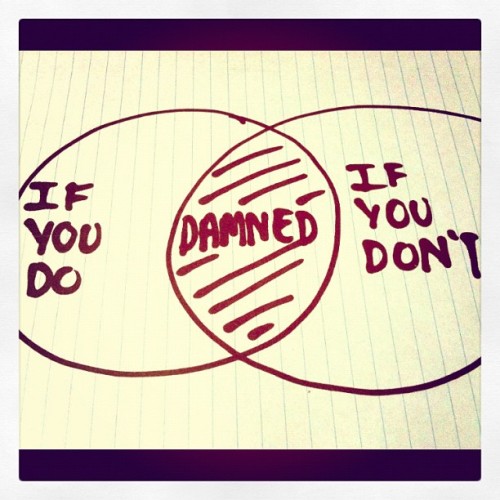Makos 11b
Our Gemara relates the tragic story of Yehudah and his guarantee to return Binyomin safely to his father.
In general, a Beis Din can excommunicate an individual as a result of his wrongful conduct to coerce him to amend or retract his actions. When he does retract, the Beis Din needs to nullify the ban.
Similarly a person may conditionally excommunicate himself to ensure that he performs a certain desirable act. Similar to the Halocha that ‘one is permitted to swear that he will perform a Mitzvah’.
But here is the perplexing part: In a conditional excommunication even if the condition was satisfied an active nullification must take place. If not – the ban and its consequences remain.
Let us use an example: A Lubavitcher decides mid- winter that on the next Yom Tov he will go on Tahalucha to the East Side…… In order to solidify his resolve, he adds “if I don’t go I will be excommunicated” ……
Now Pesach comes and ….. afraid his wife will stop communicating with him because of the impending excommunication…. he does his Chasidic duty and trudges to an East Side shul.
Nevertheless, this fellow needs to have this excommunication nullified. If not, it remains in place.

The source for this perplexing Halacha is found in our Gemara, Makos 11b.
Wanting to convince his father Yaakov to allow him to take Binyomin to Mitzraim he utters a conditional ‘self-excommunication; If he, Yehudah, were not to bring Binyomin back safely, the excommunication would take effect.
Although Binyomin did survive the trip to Mitzraim and was united with his father, the excommunication of Yehudah took effect. It was never nullified. Thus, even after Yehudah’s death, this excommunication had its effect on Yehudah. It manifested itself in the ‘rattling’ of his coffin; his bones which disconnected from the spine causing them to juggle for forty years while in transit to Eretz Yisroel.
It was only after Moshe Rebeinu prayed for the excommunication of Yehudah to be nullified that his bones were reconnected and his suffering and rattling ceased.

The Gemara derives from this fascinating story that all excommunications even if it conditional must be nullified regardless of whether or not the condition was met.
The glaringly obvious question is of course as to why was this excommunication not nullified by Yehudah himself or by Yaakov his father?
The Rambam and Raavad discuss the question as to why Yehudah did not annul the ban himself, as is the Halacha in regard to a Talmid Chacham. The Raavad concludes his remarks by saying “the question I remain with, is why Yaakov didn’t annul and relieve Yehudah of his obligations”. Rabeinu Eliyahu Mizrachi also asks this question.

Some answer the question by saying that Binyomin didn’t return with all his brothers to Eretz Yisroel to pick up Yaakov and the rest of the family. He remained in Mitzrayim and only met his father there. Thus Yehudah never did bring Binyomin back.
In other words Yehudah never fulfilled his vow and the excommunication could not be lifted.
So here we come to a most brilliant idea from the Rogatchover:
He suggests that Yehuda’s obligation was specifically “I will bring back Binyomin to you”.
And Binyomin did indeed return to Yaakov…
But it was not Yehudah’s doing. Binyomin returned on his own.
Neither Yaakov nor Yehudah could therefore annul the excommunication.
What is the meaning of this? And what is the difference on how he returned? And why is Yehudah still punished for this if all ended well?
To be continued…